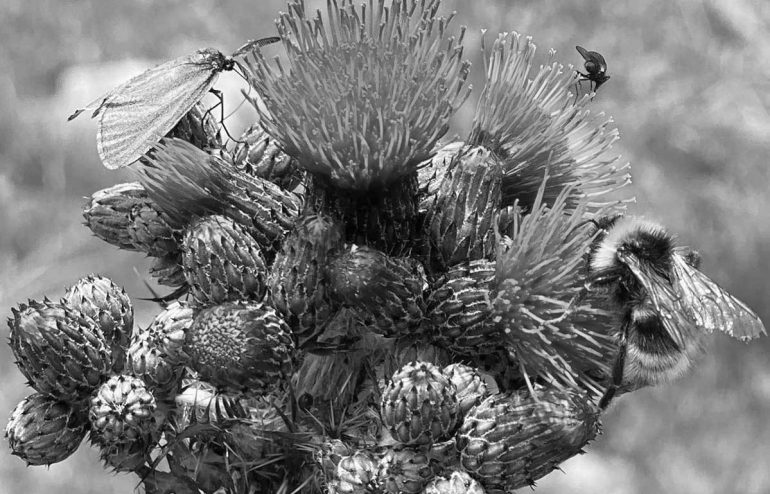Post-Corona or in the middle of it?
Admittedly: I lack the undivided attention, the focus that the quarantine – and not only the home office – allowed us. Which meant a lot of effort, the new digital communication, the concentration on the interlocutor at the screen, the discipline of conducting conversations, the calmness of letting thoughts develop: all this is reduced and the focus “dispersed”.
Instead: Expectable and unexpected (partly) emotional outbursts from people to whom I would never have ascribed such things: fighting for the preservation of imaginary free spaces, crossing red lines and claims to control as the last bastion and demonstration of supposed power. The return to normality is incomparably more demanding than the retreat into “modern Biedermeier” – at least for the privileged who were able to withdraw.
What an exciting experience, also for me, to be able to relate to reflected hearing, to keep my common sense and then sort out the essential findings.
Two insights and questions that come up accompany me since a digital meeting with colleagues:
How to offer reflective and appreciative resistance to persistence and preservation? How to simultaneously develop futures that integrate the wonderful knowledge and skills of the past? Today we know how to appreciate and use the achievements of our ancestors, be it in architecture, music, literature, precisely because we have developed ourselves further. And also in a new guise!
How future models think, focus on possibilities: “Energy flows where attention goes”. How do we create the ambiguous challenge of guiding the people entrusted to us towards independent thinking and acting and the handling and acceptance of multilevel conditions?
My assumption from many conversations and reflections in the past:
- A “fight” for the preservation of structures and old power relations (e.g. between teachers and students) limits our resources. A nice example is known from the far eastern philosophers who define the “highest level of the master” as the ability to learn from his student.
- In our Western understanding of a “facilitator” it is the ability to draw innovation by changing perspectives, by reflecting on customer questions and needs – and to assign to all participants the mindful and appreciative status of enjoying new insights. The struggle to preserve knowledge and transform it into future challenges, the possibilities to let it reach a broad public for the benefit of society, the social economy and the environment multiplies our powers.
- TRUST is the key – to and about us and our own, reflecting, tested attitudes and abilities and the will of people to join the good.
- Attentiveness and awareness to the needs and positions of our fellow human beings and the ability to tune into an imponderable future.
We have learned that a priori nothing is good and nothing is bad, not right or wrong, but depends on the situation, the visions and the direction – regardless of our commitment to social, economic or political guidelines Let us remain curious!
Let us move along the signposts of a penta-lemma between
- the familiar, the familiar, the comfortable the new, the alternative, the path from the previous
- the “as well as” – i.e. the interplay (integration) of the two opposing poles,
- the “neither of the two” as that of reviewing previous considerations, of searching for the overlooked.
- Only then – and with joy – does the fifth position open up as the “completely new”
(Format from the Systemic Structural Constellation according to Matthias Varga von Kibed and Insa Sparrer, @Syst)
So many chances – so many possibilities! Such a wonderful, large selection, which opens us up, if we follow our inner knowledge, to give even the unchosen a new view.
Let’s go for it and stay alert!
We are curious for your comments and a lively discussion and of course for you (on all channels and with many other methodical approaches, which we offer as security in change) there!
Yours
Barbara Schütze

